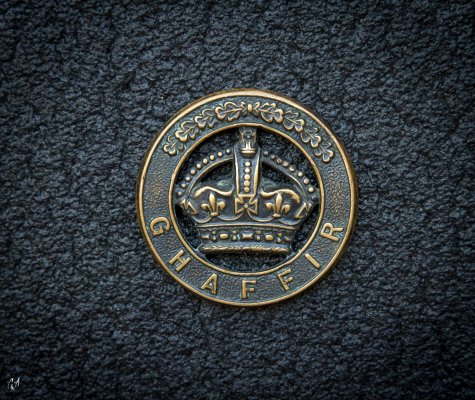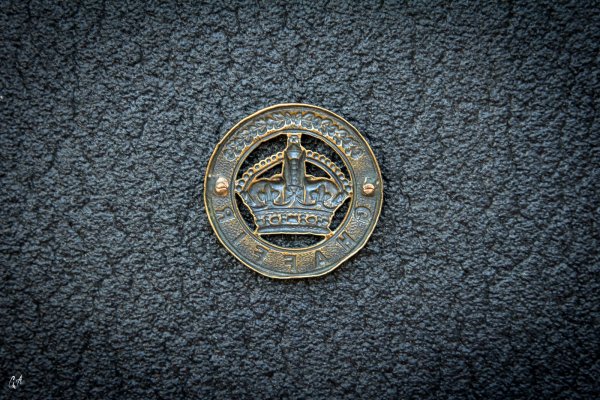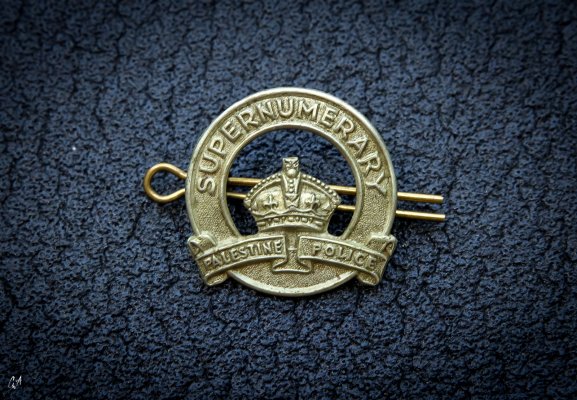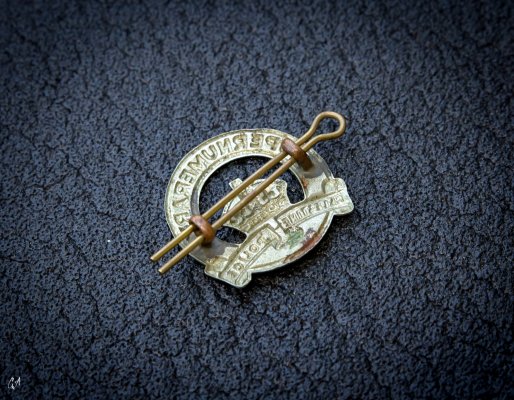Хочу показать два не рядовых предмета. Кокарду Гафира нашел аж в Австралии, в наших местах ни разу не встретил за 10 лет!
Ну и немного истории, правда, на английском.
Formation of the "Notrut"
The watershed event which led to an expansion of legal Jewish self-defense in Palestine was the "Great Arab Revolt" (or "Arab Troubles") of 1936-39. The Arab leadership of Palestine instigated the revolt, which began in the form of a general strike, as a protest against Jewish immigration and sale of land to Jews; the strike was aimed at wrecking the Jewish economy which had been dependent until then on Arab labor. However the revolt also targeted Mandatory institutions and so drew the direct reaction of the British against it.
In the year the Revolt erupted, the Palestine Police expanded its auxiliary branches with the recruitment of two full-time kinds of reinforcements: "Ghaffirs" and "Supernumerary Police":
Every police commander was permitted to recruit "Additional Police" (i.e. "Supernumerary Police") for the hour of need. These forces were equipped with military rifles, Police uniforms and paid for by the Police from a special budget.
The "Ghaffirs" (meaning "watchman" in Arabic) were a carry-over from Ottoman days and found throughout the Arabian world - a sort of private armed guard; in Palestine's case, armed and clothed in uniforms similar to those of the Police. They were armed with hunting rifles, subjected to less direct scrutiny than the "Supernumeraries", and permitted to enter the open spaces between Jewish settlements. Their salaries were paid by their employer - meaning, by the Jewish settlements and institutions themselves.

Ну и немного истории, правда, на английском.
Formation of the "Notrut"
The watershed event which led to an expansion of legal Jewish self-defense in Palestine was the "Great Arab Revolt" (or "Arab Troubles") of 1936-39. The Arab leadership of Palestine instigated the revolt, which began in the form of a general strike, as a protest against Jewish immigration and sale of land to Jews; the strike was aimed at wrecking the Jewish economy which had been dependent until then on Arab labor. However the revolt also targeted Mandatory institutions and so drew the direct reaction of the British against it.
In the year the Revolt erupted, the Palestine Police expanded its auxiliary branches with the recruitment of two full-time kinds of reinforcements: "Ghaffirs" and "Supernumerary Police":
Every police commander was permitted to recruit "Additional Police" (i.e. "Supernumerary Police") for the hour of need. These forces were equipped with military rifles, Police uniforms and paid for by the Police from a special budget.
The "Ghaffirs" (meaning "watchman" in Arabic) were a carry-over from Ottoman days and found throughout the Arabian world - a sort of private armed guard; in Palestine's case, armed and clothed in uniforms similar to those of the Police. They were armed with hunting rifles, subjected to less direct scrutiny than the "Supernumeraries", and permitted to enter the open spaces between Jewish settlements. Their salaries were paid by their employer - meaning, by the Jewish settlements and institutions themselves.




